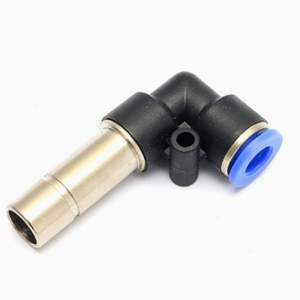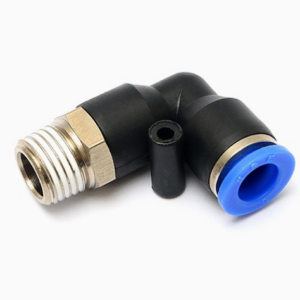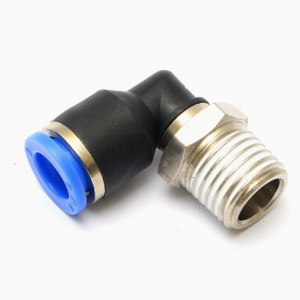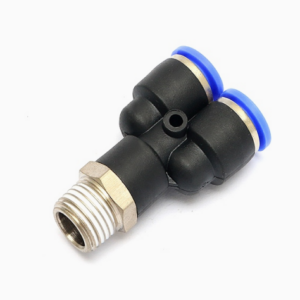45° thread elbow
Our 45° threaded elbow, model PLH, is made of PBT plastic part. Its unique 45° shape makes it easier to plug and unplug the pipe. The metal part is made of nickel-plated brass. The electrolytic nickel plating process makes it hard, corrosion-resistant and not easily oxidized.
Product Content Introduction
Product Application:
(1) The quick-connect air pipe connection is used to conduct compressed air.
(2) It has various uses depending on the user environment.
(2) It has various uses depending on the user environment.
Coding system:
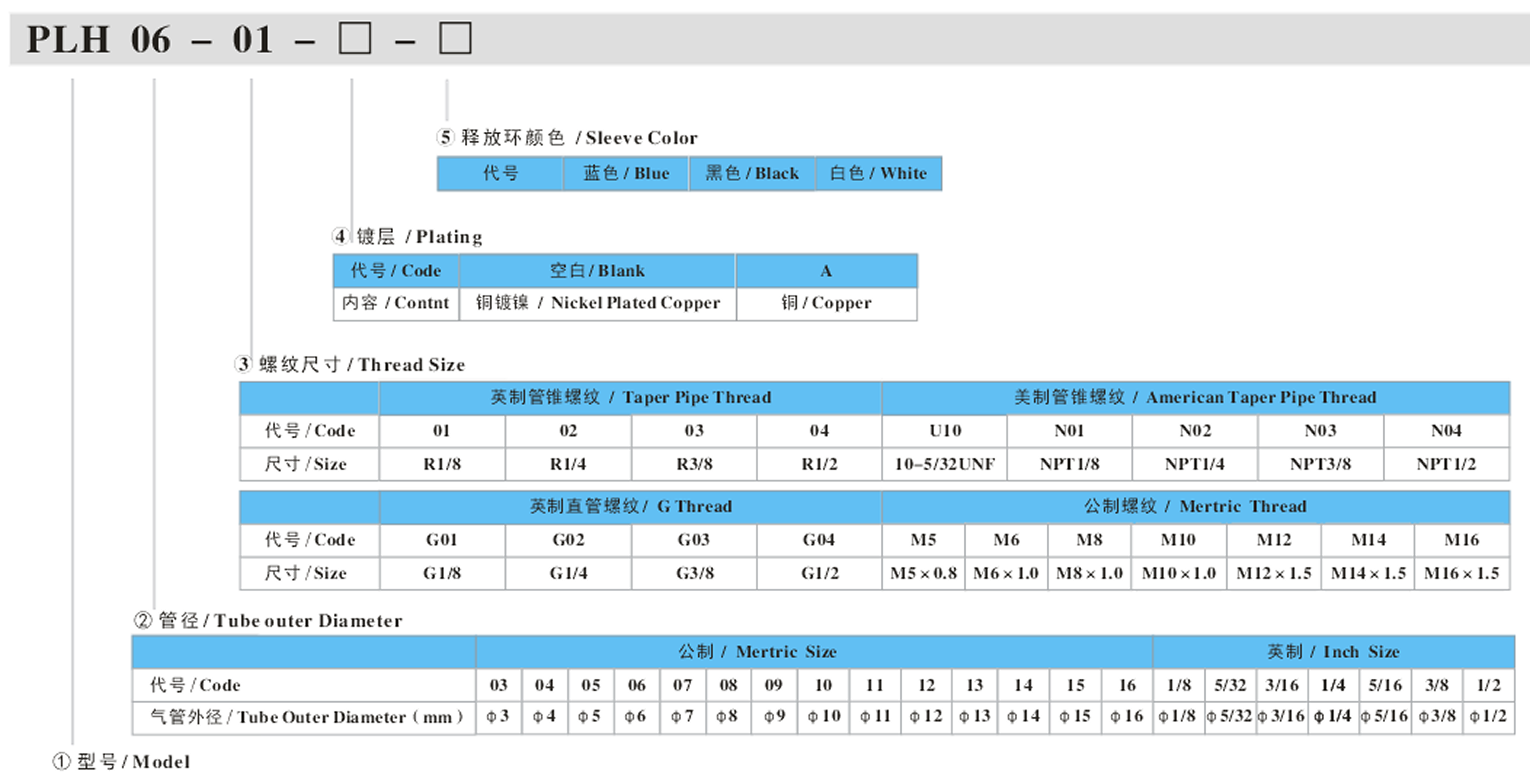
Features:
(1) 45° thread elbow, model PLH, the plastic part is at a 45° angle.
(2) Selected materials: the plastic part is made of PBT raw material, and the 45° angle structure design makes it easier to insert and remove the tube.
(3) Made of high-quality copper rods, the electrolytic nickel plating process makes it hard, corrosion-resistant and not easy to oxidize.
(4) No loosening or leakage, precise size, pressure resistance and no stripping, reliable installation and good sealing.
(5) The threaded part is coated with sealant and the M5 metric thread is equipped with a sealing gasket to ensure that there is no leakage in the threaded connection part.
(6) Tighten the high-quality retaining ring to firmly clamp the air pipe to prevent it from falling off.
(2) Selected materials: the plastic part is made of PBT raw material, and the 45° angle structure design makes it easier to insert and remove the tube.
(3) Made of high-quality copper rods, the electrolytic nickel plating process makes it hard, corrosion-resistant and not easy to oxidize.
(4) No loosening or leakage, precise size, pressure resistance and no stripping, reliable installation and good sealing.
(5) The threaded part is coated with sealant and the M5 metric thread is equipped with a sealing gasket to ensure that there is no leakage in the threaded connection part.
(6) Tighten the high-quality retaining ring to firmly clamp the air pipe to prevent it from falling off.
Product Details:

Model: PLH
Working temperature:
0℃/+60℃
Maximum operating pressure:
990 kPa
Material:
nickel-plated brass, PBT, NBR, stainless steel
Applicable medium:
compressed air, water
Use air tube:
polyurethane and nylon air tube
Suitable for pipe outer diameter: Ø4, Ø6, Ø8, Ø10, Ø12, Ø14, Ø16, Ø1/8, Ø5/32, Ø3/8, Ø1/4, Ø5/16, Ø3/8, Ø1/2
Connection thread: R1/8, R1/4, R3/8, R1/2, 10-5/32, NPT1/8, NPT1/4, NPT3/8, NPT1/2, M3, M5, M7, M8, M10, M12
Precautions for using trachea pneumatic joints:
1. Before use, be sure to refer to the safety precautions, warning display classifications and general precautions for pipe fittings.
2. When inserting the pipe, be sure to insert it to the bottom of the joint. If the pipe is not inserted to the bottom, it may cause leakage.
3. After the pipes are connected, pull the pipes to make sure that the pipes cannot be pulled out of the joints.
4. Please do not use for purposes other than fluids.
5. Do not exceed the maximum operating pressure during use.
6. Do not use it outside the operating temperature range to prevent deformation of the sealing material, which may cause leakage.
7. Do not hit, bend or stretch it artificially to prevent damage.
8. Do not use in places mixed with metal powder or sand dust, as attachment of debris may cause malfunction or leakage.
2. When inserting the pipe, be sure to insert it to the bottom of the joint. If the pipe is not inserted to the bottom, it may cause leakage.
3. After the pipes are connected, pull the pipes to make sure that the pipes cannot be pulled out of the joints.
4. Please do not use for purposes other than fluids.
5. Do not exceed the maximum operating pressure during use.
6. Do not use it outside the operating temperature range to prevent deformation of the sealing material, which may cause leakage.
7. Do not hit, bend or stretch it artificially to prevent damage.
8. Do not use in places mixed with metal powder or sand dust, as attachment of debris may cause malfunction or leakage.
Notes when disassembling:
1. Use appropriate tools to disassemble the pipe joint using the outer hexagonal part of the pipe joint.
2. Remove the sealing material adhering to the opposite side of the pipe joint to prevent the adhering sealing material from entering the surrounding components and causing failure.
2. Remove the sealing material adhering to the opposite side of the pipe joint to prevent the adhering sealing material from entering the surrounding components and causing failure.


